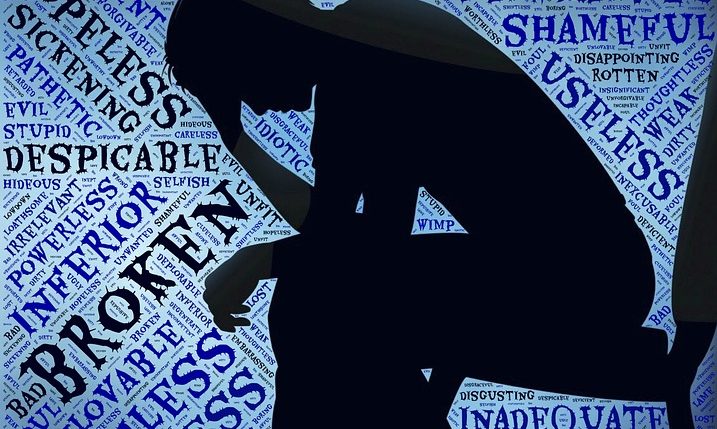
Amitriptyline
Amitriptyline 25 mg for Depression: Reviews about the drug
- 1 Features of the drug
- 2 Amitriptyline 25 mg: Indications for use
- 3 The main contraindications
- 4 Amitriptyline possible side effects
- 5 The effect of Amitriptyline in depression
- 6 Application of the drug in Vegeto-vascular dystonia
- 7 The effect of Amitriptyline in Panic Attacks
- 8 Treatment of depression by Dopamine
- 9 Music therapy against depression
- 10 Preventive actions
A vivid representative of the group of antidepressants of the first generation is Amitriptyline 25 mg. This drug affects the nerve cells of the brain. Reviews of people taking amitriptyline in depression are mostly positive.

Amitriptyline 25 mg is a new generation antidepressant.
Features of the drug
Amitriptyline is designed to combat a vivid sense of anxiety and a depressed state. It is produced in the form of a colorless solution and tablets covered with a white coating.
From the majority of antidepressants Amitriptyline differs in that it does not contribute to the appearance of hallucinations.
Amitriptyline 25 mg: Indications for use
The medicine is prescribed for:
- Depressions.
- Headaches.
- Nocturnal bulimia.
- Mental disorders.
- Anxiety, panic attacks.
Take any antidepressants can only be prescribed by a doctor.
The main contraindications
Amitriptyline is not recommended for:
- Arrhythmias.
- Hepatic pathologies.
- Porphyria.
- Blockade of the heart.
- Manic phase of manic-depressive psychosis.
- Myocardial infarction.
- Closed-angle glaucoma.
Do not take Amitriptyline for heart problems.
The drug does not work well with monoamine oxidase inhibitors. In order to avoid conflict, this medication should be drunk only 2-3 weeks after the end of the therapeutic course. In the responses of people who are treated with depression Amitriptyline, it is said that his treatment is undesirable to persons under 16 years old.
Amitriptyline possible side effects
Taking this antidepressant can lead to side effects from the cardiovascular and central nervous system. From the gastrointestinal tract there are such side effects as nausea, constipation, diarrhea. On the part of the reproductive system there is a decrease in libido.
In the responses of people who have been depressed, it is said that the treatment with Amitriptyline is not well tolerated by the body, sometimes it causes drowsiness. Therefore, during the therapeutic course it is recommended to avoid drinking, driving cars.

The use of amitriptyline contributes to an unexpected drop in blood pressure. The patient complains that his eyes are getting dark, his head is spinning. In elderly people, a drug provokes a decrease in sodium blood. A person’s consciousness is distorted for a short time, convulsions appear.
Sharp refusal of this antidepressant leads to sleep disturbances, dizziness, increased anxiety. These symptoms soon disappear.
The effect of Amitriptyline in depression
Amitriptyline increases the levels of norepinephrine and serotonin. It has a powerful sedative effect. Depressive symptoms, anxiety, panic, are reduced to a minimum. Also, the medicine has an analgesic effect.
The result of treatment of depression with amitriptyline is noticeable after 20-30 days. Until then, you can not stop taking the medicine, even if the patient does not feel better. Refer to a doctor if you are worsening the symptoms of depression. A serious alarm bell is the appearance of suicidal thoughts.
After treatment, the feeling of anxiety and sadness goes away, a feeling of joy and infinite happiness arises.
Application of the drug in Vegeto-vascular dystonia
Vegeto-vascular dystonia (VVD) involves a complex treatment, involving the use of:
- Neuroprotectors;
- Sedation medications;
- Antidepressants;
- Beta-blockers.
Amitriptyline with VVD is prescribed when the VVD is characterized by increased anxiety, sleep disorders.
The drug is recommended for taking on increasing. Depending on the severity of the symptoms, doctors recommend that you drink first 1/4 tablet of Amitriptyline twice a day. Then one-fourth of the pill should be drunk twice a day. Then, three times a day, 1/2 tablet is taken. When the daily dose is 3 tablets / 24 hours, the countdown begins. You need to do this only under the supervision of a doctor.
The effect of Amitriptyline in Panic Attacks
Amitriptyline with panic attacks is prescribed when they are resistant, differ in resistance. The medication is quickly excreted from the body. Therefore, Amitriptyline with neuroses is taken 4 times / 24 hours, 7-10 mg. When the symptoms of anxiety persist, the dosage increases. Self-reduction in dosage leads to an aggravation from the withdrawal of the drug. The duration of the therapeutic course is six months.
Many reviews of Amitriptyline in panic attacks say that this is a powerful medicine that can cope with the exacerbation of neurosis. At the same time, people say that the first 3-4 days of treatment can be marked by the appearance of side effects. A man complains of dry mouth, severe drowsiness. Then the side effects disappear, the patient becomes more efficient. With prolonged admission, pain occurs in the stomach. If the pain syndrome does not disappear for a long time, you need to see a doctor who will replace the antidepressant.
Treatment of depression by Dopamine
The normal level of dopamine makes a person happy and happy. The lack of a hormone leads to depression. Normalization of hormone levels is possible by:
- Exercising.
- Refusal of alcohol.
- Restrictions on coffee consumption.
- Restrictions on the use of products containing caffeine.
Dopamine is the hormone of happiness.
Drug-induced increase in dopamine levels during depression is prescribed against the background of the risk of complications caused by a deficiency of this hormone. The patient is prescribed to take Phenylalanine, Tyrosine, Ginkgo Bilobate.
The main component of Phenylalanine is a specific amino acid that converts tyrosine, and then converts it into dopamine. If there is a violation of hormone secretion, this drug is irreplaceable. Ginkgo Two-lobed helps normalize blood circulation. Against the background of its intake, the oxygen concentration in the organs increases.
Tyrosine has a direct effect on the development of the hormone. The highest percentage of tyrosine is observed in vegetables and fruits. A person is recommended to eat more greens, beets, apples, protein foods. It is desirable to replace black tea with herbal or ginseng broth.
Music therapy against depression
One of the best modern non-medicament methods of combating depression is music therapy. Medical music helps to get rid of depression, nephrosis, psychosis, symptoms of vegetative-vascular dystonia. It removes nervous tension, negative emotions.
Music therapy is one of the most effective methods of treating depression.
The influence of music on physiological processes is proved. Important characteristics of the human body can change under the influence of this or that melody. Music has an impact on:
- Rhythm of the heart rate;
- Frequency of breathing;
- The depth of breathing;
- Arterial pressure.
Influence is carried out through the patient’s nervous system. Strong influence has a rhythm. The influence of music lends itself to the most important regulator of the human body, the hypothalamus.
Treatment with music takes place in an active or passive form. If a patient plays on one or several musical instruments, he can independently participate in the creation of the work. Passive form is characterized by listening to music, describing aloud the images that have arisen.
The duration of music therapy varies from 35 to 45 minutes. The duration of the therapeutic course is 10-20 procedures. But you can listen to music not only in the clinic. It is allowed to listen at home to musical collections intended for the treatment of mental disorders. Chinese folk music has a remarkable effect.
Often listening to medical music, which has a sedative effect, is prescribed to people suffering from insomnia. It is desirable to listen to it before going to bed. Normalization of sleep is observed after 1.5-2 weeks.
Music therapy helps to fight insomnia.
This type of treatment is used to prevent mental disorders. The mood is enhanced by listening to rhythmic, cheerful musical compositions. Fatigue and negative emotions are eliminated by listening to meditative or classical piano music. Often, music therapy is combined with art therapy. This combination is prescribed for children and adolescents at risk.
Preventive actions
The patient is recommended to be more out in the open air, actively engage in sports. It is desirable to play team games, swim, ride a bike. It is useful to visit the city, communicate with your relatives, close friends.

Recent Comments